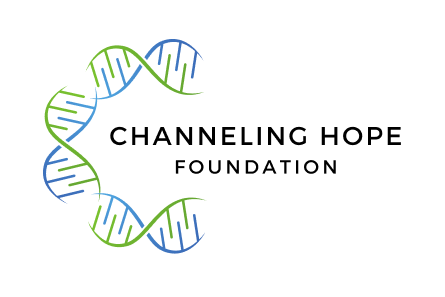Channeling Hope Foundation
Cycle 3
Genetic mutations of the NALCN Channel (also known as the Sodium Leak Channel) and associated proteins (UNC79, UNC80, FAM155) are very rare genetic disorders. The NALCN Channel plays a crucial role in regulating the electrical activity of neurons and other cells.
Last updated 04/30/2025
Clinical
Disease Class
Channelopathies
Genetic diseases
Body Systems
Digestive
Muscular / Skeletal
Nervous / Sensory
Respiratory
Organs
Brain
Connective tissue / joints
Eyes
Heart
Muscles
Known Genetic Link
Yes, one or more genes directly cause the condition
causative_genes
NALCN
NALF1 (FAM155A)
UNC79
UNC80
contributory_genes
None specified / unknown
Type of Inheritance
Autosomal recessive
De novo
Newborn Screening
No
Disease Mechanism(s)
Ion channel dysfunction
Age of Onset
Infancy (age 0-1)
Prebirth
Average Age at Diagnosis
Early childhood (age 1+-5)
Infancy (age 0-1)
Life Expectancy
Adulthood (age 18-64)
Early childhood (age 1+-5)
Infancy (age 0-1)
Affected Sex(es)
Female
Male
National Prevalence
11-50
Global Prevalence
51-100
National Incidence
Less than 10
Global Incidence
Less than 10
Symptoms / Phenotypes
abnormal brain features
abnormal hand morphology
adducted thumbs
breathing difficulties
cardiac abnormalities
clubfoot/talipes equinovarus
constipation
delayed ability to walk
developmental delay
excessive salivation
feeding difficulties
gastroesophageal reflux
hip dysplasia
intellectual disability
seizures / epilepsy
speech delay
vision problems
Biomarkers
Diagnostic
· Mutation in the NALCN gene or in an associated protein (UNC79, UNC80)
Monitoring
· developmental milestones, Brain MRI
Existing Therapies
None
Organizational & Research
Cell Lines
Fibroblasts
iPSCs
Other
Cell Lines, Institution
Baylor College of Medicine
French National Centre for Scientific Research (CNRS)
Cell Lines, Involvement
Consulted
Funded
Own
Cell Lines, share
Some of our cell lines are freely available
Disease Model
Mouse
Disease Model, Involvement
Consulted
Disease Model, share
All our disease models are freely available
Clinical Trial Role
Not involved
Biobank, Institution
None
Center of Excellence, Institution
None
Registry
Yes, we have collaborated on a registry
Data Collected, Registry
Genetic data
Medication usage
Patient contact info
Patient-reported data
Data Entered by, Registry
Patients
Platform, Registry
RARE-X
Natural History Study
No, we do not have a natural history study, but we plan to create or collaborate on one
FDA Patient Listening Session
No
FDA Patient-Focused Drug Development (PFDD) Program
No
ICD Codes
No, we do not have any ICD codes
Diagnostic Guidelines
No
Science Advisory Board Policies
No policies
Research Network Policies
Has CRN but no policies
Research Roadmap
Yes we have a Research Roadmap, and will share policies
International Chapters
Europe
International Partners
Europe
